You know what it means to be tired—it’s the desire to enter a vegetative state and not do anything remotely useful for yourself or the development of humankind.
Ever wondered why you’re always tired? There are a number of mechanisms that make us tired, and each one of them makes us feel a certain kind of exhaustion. But there are ways to fix it, too.
Related: Boost Your Energy Now
Sleepy Tired
This is a particular type of fatigue that makes you feel drowsy and heavy-headed once bedtime approaches. Because of melatonin, though, you can’t really avoid it, even if you had a fairly relaxing day and generally sleep well.
Basically, the more of this chemical you have in your system, the sleepier you feel. Your body produces melatonin following a pattern known as the circadian cycle. Barely any melatonin is produced in the morning and mid-day, but it starts to kick in between 8 and 9 p.m. and hits its peak between 1 and 2 a.m., at which point you really want to hit the sack. It stays at pretty elevated levels for about 12 hours, until around 8 a.m.
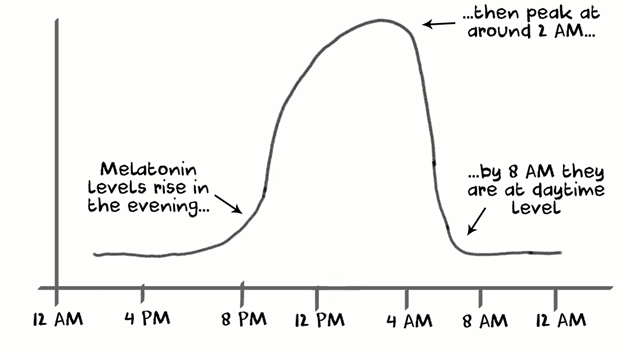
Melatonin diminishes our ability to be alert and focused. That’s why our work schedules are generally structured around mornings and early afternoons, and much less in the evening.
But not everybody produces melatonin in the same intervals. Some might hit peak melatonin at midnight and feel perfectly refreshed waking up at 7 a.m., while others reach their highest melatonin levels at 1:30 a.m. and need to wake up at 8:30 a.m. to feel just as rested. This is called a chronotype, and it varies from person to person.
Science has speculated this is actually an evolutionary trait, because those who fell asleep later could stand guard over those who went to bed earlier.
Your body knows on a biological level whether it’s night or day by sensing how much light is in the environment. If there’s a lot of light, then it must be daytime; if it’s dark, it must be night.
Here are some tips that will help you get a good night’s sleep and ensure you are well rested in the morning:
1. Learn what your chronotype is.
Going to bed and waking up at your default hours will help you avoid restless periods when you can’t fall asleep because your body isn’t ready yet.
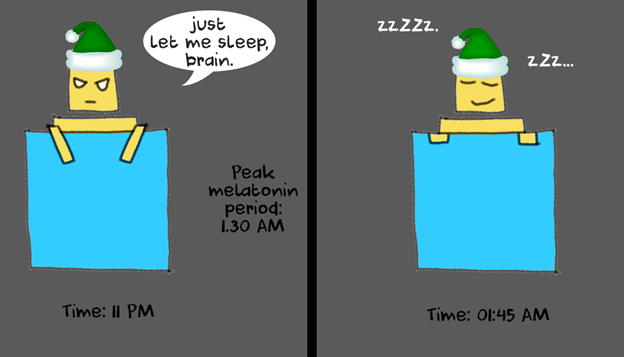
2. Keep your work environment well lit.
This is especially relevant during winter times when the day is short. The extra light will delay the production of melatonin and allow you to squeeze in a bit more productive work time.
3. Try not to use smartphones or laptops before bed.
Screens in general make it harder for you to fall asleep because the light they emit happens to be in the same spectrum as daylight. Basically, they trick your brain into thinking it’s still daytime and will delay production of melatonin, making it harder for you to fall asleep.
Synapse-Fatigue Tired
Our brain is composed of billions of neurons, and it functions by sending information from one neuron to another. Neurons are connected through small gaps called synapses.
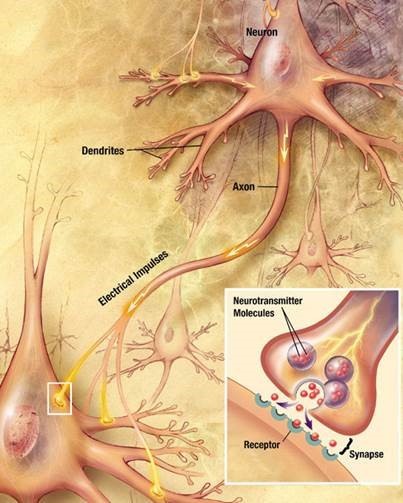
So in order for information to pass from one neuron to the next, it needs to be carried across these synapses. The task of transporting information falls on neurotransmitters.
Imagine the whole thing as a biological shipping port.
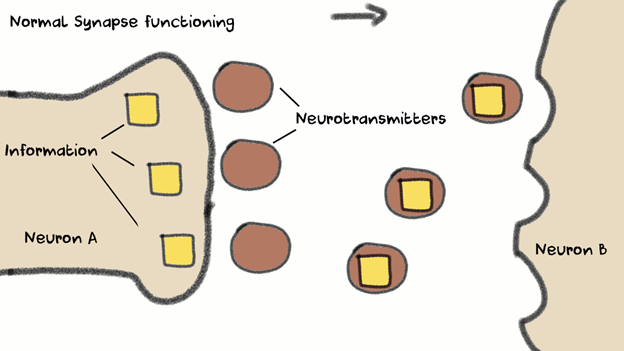
However, you have a limited amount of neurotransmitters. It’s easy to do stuff when you are rested since you have enough of them to process information. But once they are all used, you must wait for them to regenerate.
This is when you start to feel tired. Basically, your neurons get clogged up with information but don’t have enough neurotransmitters to send it to other brain cells. In this case, information processing grinds to a halt.
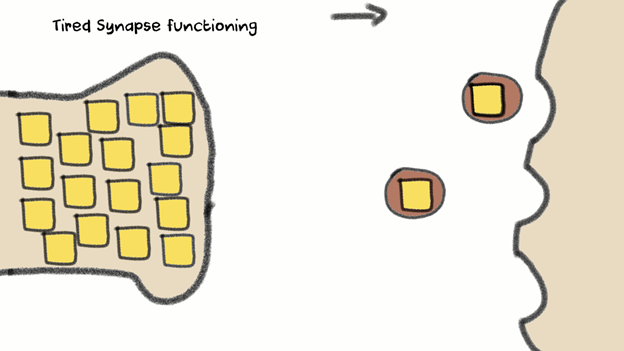
That’s why you will reread the same book page for five minutes, or spend 30 minutes to write a two-sentence email.
Here are some tips to avoid mental fatigue and extend your productive time:
1. Be sure to take breaks.
After a prolonged period of concentration and work, the amount of neurotransmitters in your brain plummets, so taking a time out will help regenerate them and get you back on track.
2. Drink water.
Among its many functions, water stimulates the creation of neurotransmitters and will help you stay mentally sharp and creative while minimizing brain fog.
3. Prolonged exposure to a task will make you insensitive to it.
When you put your hand in cool water, there’s an initial temperature shock but it wears off within in a few seconds. A similar process applies to work tasks too, after a while you become “blind” and won’t be able to easily spot errors and mistakes.
I-Can’t-Make-Enough-Energy Tired
Another source of fatigue comes from your body’s inability to produce enough energy to function properly.
The way your body produces energy is a fairly complicated process, but a good part of it happens at the cellular level, beginning with your mitochondria, often referred to as the “power plants” of cells.
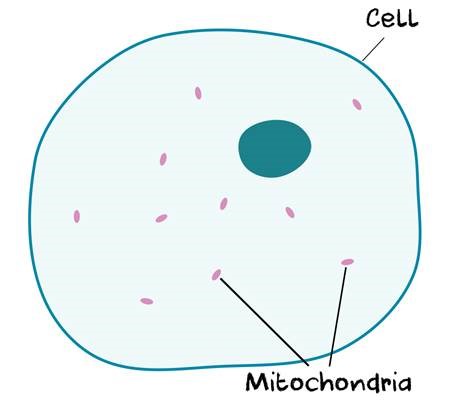
The number of mitochondria in your cells is a variable figure. What happens is that your body creates only enough mitochondria as it needs to power up.
If you’re a sedentary person, then you have a lower of amount of mitochondria because you don’t need that much energy to function. But if you’re going through an unusually demanding day, then your body will struggle to keep up.
One of the best ways to gain more “power plant” cells is to exercise. Here are just a few of the ways working out will prevent you from tiring out so quickly:
1. Exercise is a very energy intensive activity for your body.
So in order to cope, it creates a lot more mitochondria in order to sustain the fuel demand. But those mitochondria also produce energy during regular, low-intensity activity. As a result, it takes you longer to tire out, and even when you reach that point, you’ll recover faster.
2. Besides producing more energy, exercise will also make your body more efficient.
Your muscles get better at extracting oxygen out of your blood when you exercise. Because of this, your heart, which is also a muscle, doesn’t need to work so hard to distribute oxygen to organs and muscles.
3. A moderate amount of light exercise will fire you up and improve your concentration and other mental abilities.
The emphasis really falls on the words “moderate” and “light”—anything more than that and you actually risk depleting your energy reserves.
Once you know what biological mechanisms drag you down, it becomes possible to work around them or improve them.
Related: 3 Ways to Optimize Your Success by Optimizing Your Energy




